See the Azores sustainably
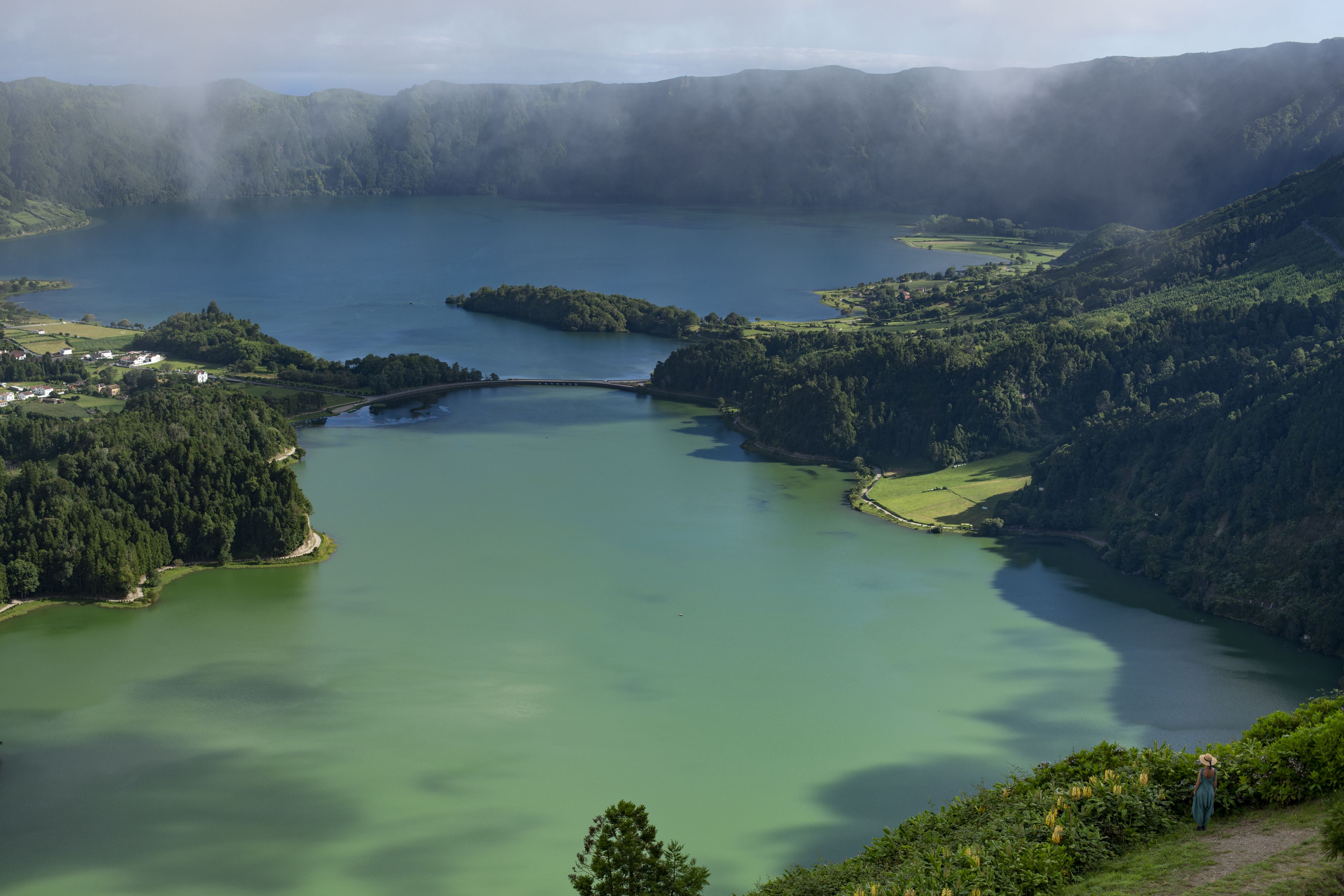
The world’s first archipelago to be recognised as a sustainable destination, the alluring Azores islands are awash with opportunities for eco-friendly adventures. The Azorean tourism industry works diligently to protect the islands’ astonishing beauty and abundant natural resources, and encourages visitors to play an active role in preserving the delicate balance of ‘the Galapagos of the Atlantic’.
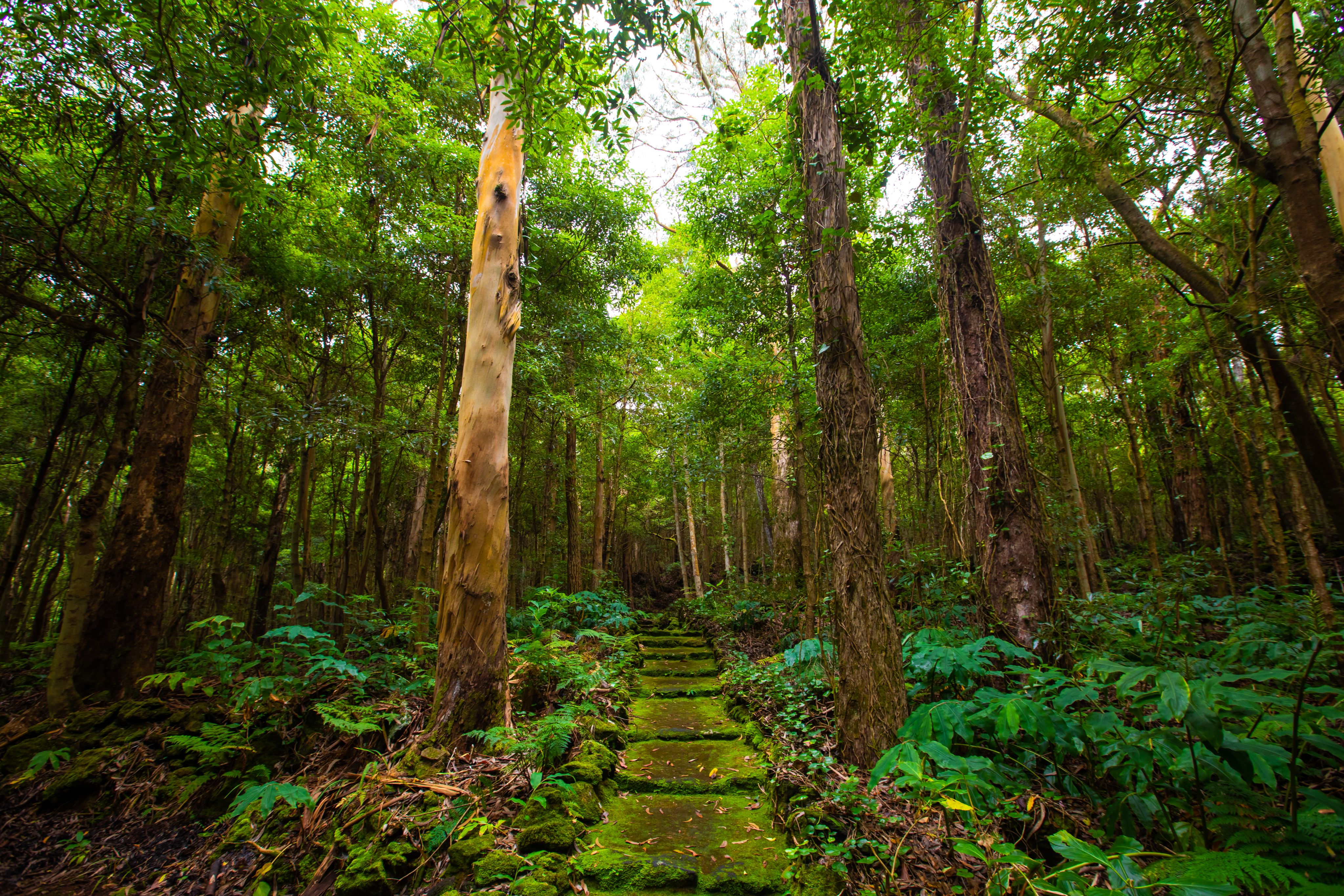
How to get there
The Azores archipelago is a paradise for eco-conscious travellers, and British Airways’ direct flights from London to Ponta Delgada make it easier than ever to reach this string of Portuguese islands in the middle of the wild Atlantic.
Touching down in subtropical São Miguel – the largest of the nine islands – visitors are perfectly placed for island-hopping adventures. Inter-island flights between each of the islands (some direct, others via a connecting island), and ferry rides are an invigorating way to travel between neighbouring islands such as tiny Corvo and nearby Flores, as well as the ‘central group’ of Terceira, São Jorge, Pico, Faial and Graciosa.
Green adventures
Volcanic peaks, caldera lakes, geothermal pools, laurisilva forest and lava fields, subtropical flora and fauna and magnificent marine life combine to make the Azores one of the best adventure tourism destinations in the world. It’s the astonishing biodiversity and dramatic topography that makes the archipelago so captivating, and the Azorean tourism industry works hard to ensure visitors can admire nature’s bounty without harming it.
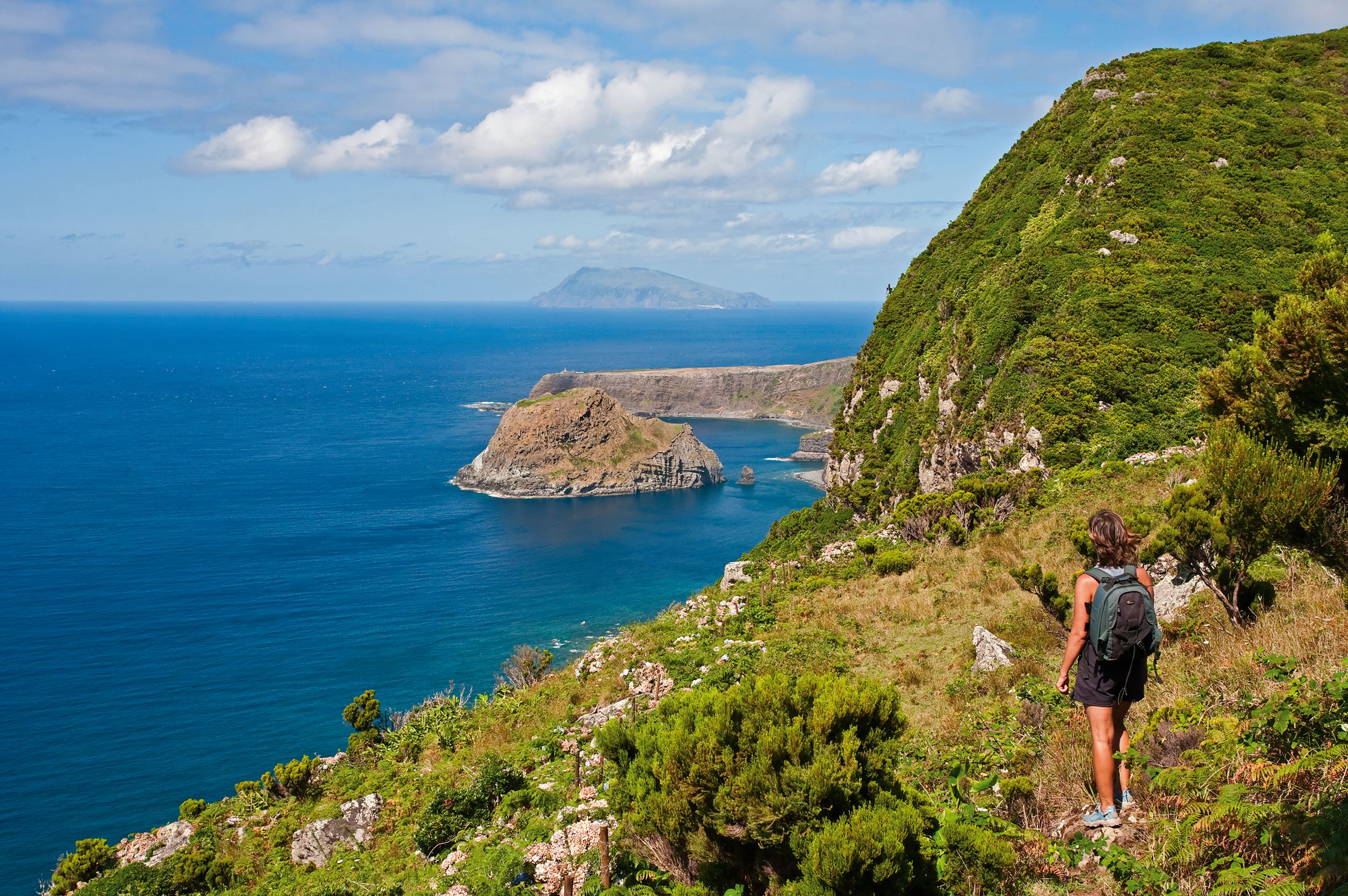
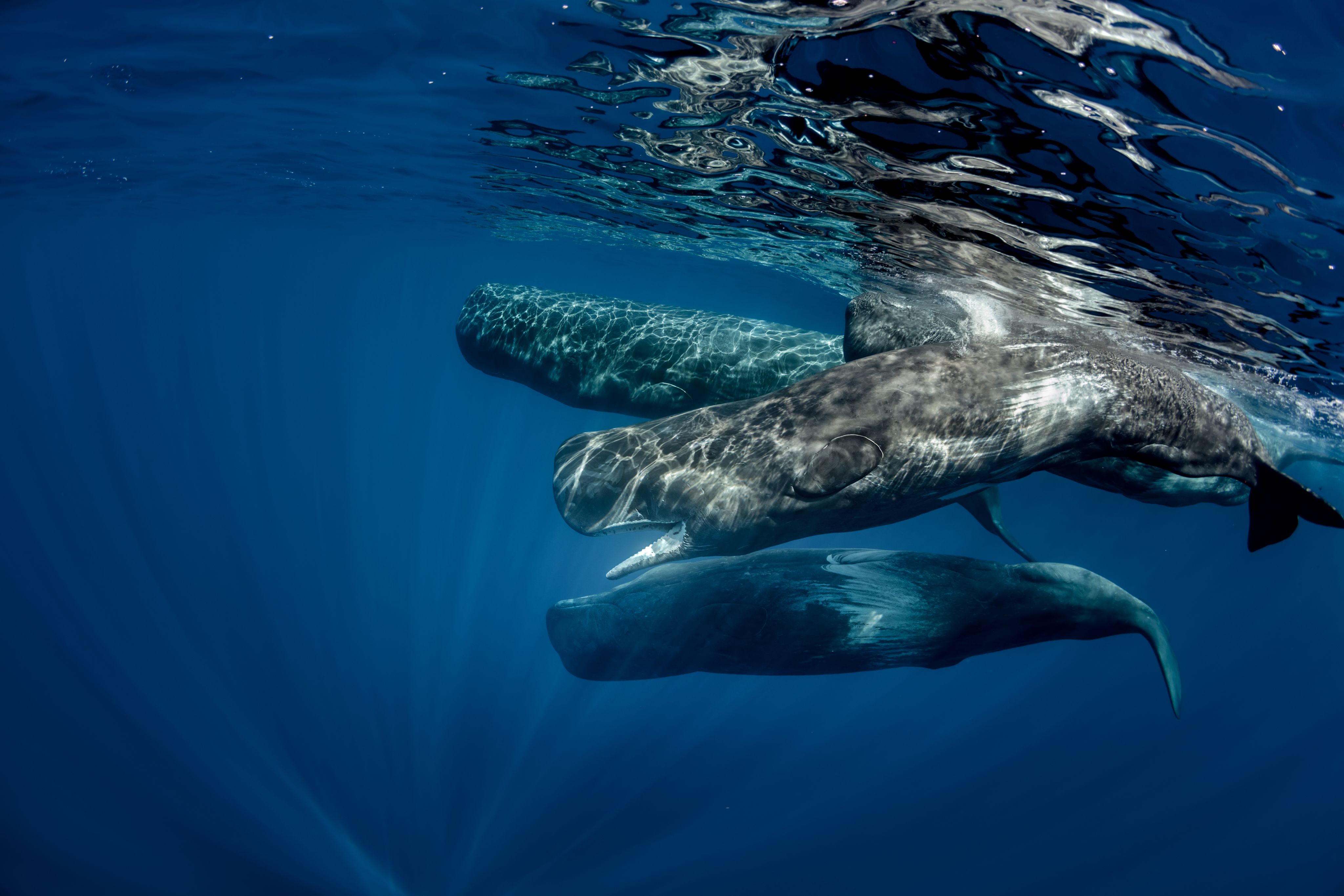
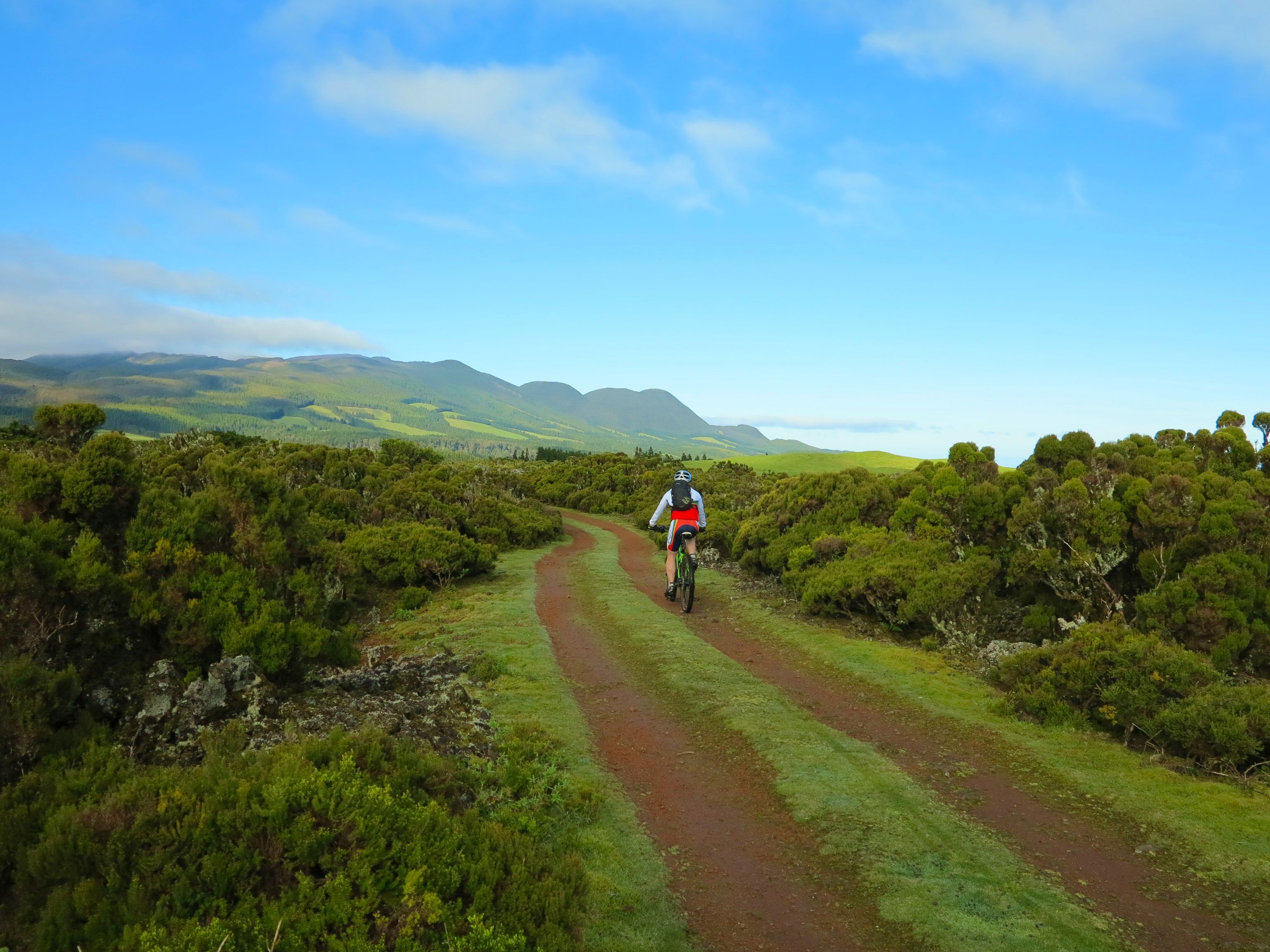
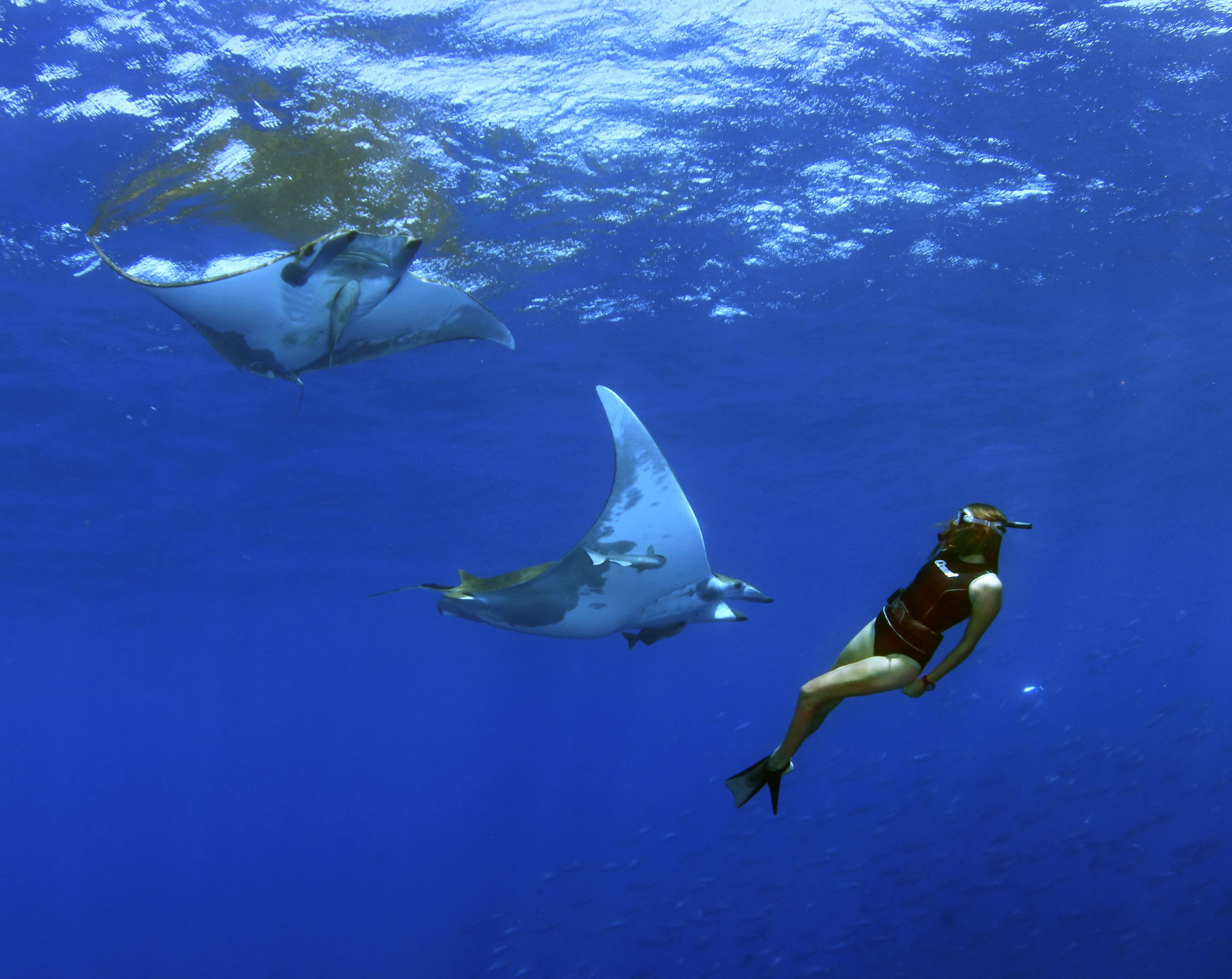
Hiking
Hiking and sustainability go hand and hand in the Azores. A ‘green’ destination in every sense of the word, the archipelago offers trails to suit all energy levels, with an extensive network of trails (clearly graded as easy, medium, or difficult) allowing visitors to immerse themselves in the islands’ beauty without causing damage to flora or fauna.
Lace up your hiking boots and wind your way between towering peaks, blue-green crater lagoons, free-grazing cattle, mist-swathed laurisilva forest, volcanic vineyards, coastal trails, bubbling geysers and muscle-soothing thermal springs.
Each of the islands offers a unique hiking experience, but some of the most rewarding routes on the archipelago include walking the volcanic rim of the twin crater lakes at Sete Cidades on São Miguel; walking all or part of the famous coastal Grande Trilho on Santa Maria (a multi-day coastal hike that can be split into more manageable sections); making the rocky ascent to the archipelago’s highest point at Mount Pico, or strolling between craters, wetlands and black stone walls on small-but-scenic Corvo.
Whale watching
Its isolated location surrounded by the deep waters of the North Atlantic makes the Azores one of the world’s top spots for whale watching. One of only six destinations worldwide to hold Whale Heritage Site status, the Azores tourism industry actively works to protect the resident and migratory species that thrive in the waters surrounding the islands.
Sustainable tours setting sail from key locations like Faial, São Miguel, Pico, Terceira and Graciosa offer an excellent chance of spotting the resident sperm whales year-round, while migratory species like humpback, blue, and great whales can be spotted during their migratory seasons.
More than 20 different types of cetaceans can be spotted off the shores of the Azores and the clear waters make for thrilling encounters with these giants of the deep. While whale hunting was once a major industry on the archipelago, today the islanders are fully committed to understanding and protecting marine mammals.
The Azores was awarded Whale Heritage Site in 2023 by the World Cetacean Alliance, reflecting the Azoreans’ commitment to celebrating, respecting and protecting the whales through conservation activities and a responsible approach to whale watching tourism.
Biking
For a sustainable way to see the best of the Azores islands, visitors can ditch the car and explore the archipelago by bike. Each of the islands is fully geared up towards two-wheeled adventures, with extensive networks of cycle routes clearly designated as suitable for road, cross country, or enduro cycling.
Whether you want to feel the sea breeze on a coastal route on Santa Maria, brave the leg-burning ascent and heart racing descents of Mount Pico, or tour the volcanic vineyards of Terceira, cycling in the Azores offers experiences to remember.
Thanks to a wildly varied terrain with steep climbs and daredevil descents, the Azores is increasingly popular as a destination for off-road adventures and downhill enduro biking, while cycling between tiny villages or winding through the city streets of Ponta Delgada or Angra do Heroísmo makes for a relaxed way to see the sights.
Hiring bicycles and equipment is a stress-free experience across the islands, and those who want to combine outdoor activity with learning more about the islands and their history can enjoy sightseeing bike tours led by local guides.
Diving
With a unique volcanic seafloor topography, clear waters warmed by the Gulf Stream, and a rich marine life, the Azores islands are home to some of the most exciting dive sites on the planet. The waters surrounding the volcanic islands attract not only large marine mammals like whales and dolphins, but also enormous shoals of pelagic fish, several species of shark and sea turtle, and gliding devil rays.
Experienced divers can enjoy immersive undersea adventures in the waters surrounding each of the nine islands, exploring submerged caves, centuries’ old shipwrecks, and underwater arches.
No diver will want to miss the Azorean seamounts: underwater elevations caused by the same volcanic activity that created the islands themselves. Among the most famous of these is Princess Alice Bank, some 50 nautical miles from Pico Island, while other key sites include Dom João de Castro Bank, a submerged volcano between Terceira and São Miguel.
On Terceira island, the Underwater Archeological Site of Angra do Heroísmo is a good place to start your sustainable underwater adventures.
Sustainable spotlight
The Azores' globally recognised sites
Widely regarded as one of the world’s best destinations for ecotourism, the Azores encourages visitors to help support the incredible biodiversity and natural attractions that make the isolated archipelago so invigorating.
From volcanic caves and grottoes to vast crater lakes and hot springs, an incredible 121 geosites dotted across the nine islands and their surrounding waters combine to make the Azores Geopark – a UNESCO-protected area of international geological importance.
The islands and surrounding marine areas of Corvo, Flores, and Graciosa, together with the low-lying plains (or fajãs) of São Jorge are all classified by UNESCO as Biosphere Reserves, ensuring the protection of the birdlife, endemic flora, and waterfalls that abound here. And it’s not just the natural attractions that are considered worthy of protection. Rich in 16th-Century architecture, the historic centre of Angra do Heroísmo is a UNESCO World Heritage Site, as are the unique black lava vineyards of Pico Island.
Many of the archipelago's wetlands serve as a point of refuge for migratory birds and endemic wildlife, with 13 of these ecologically rich spots identified as ecologically important Ramsar sites.
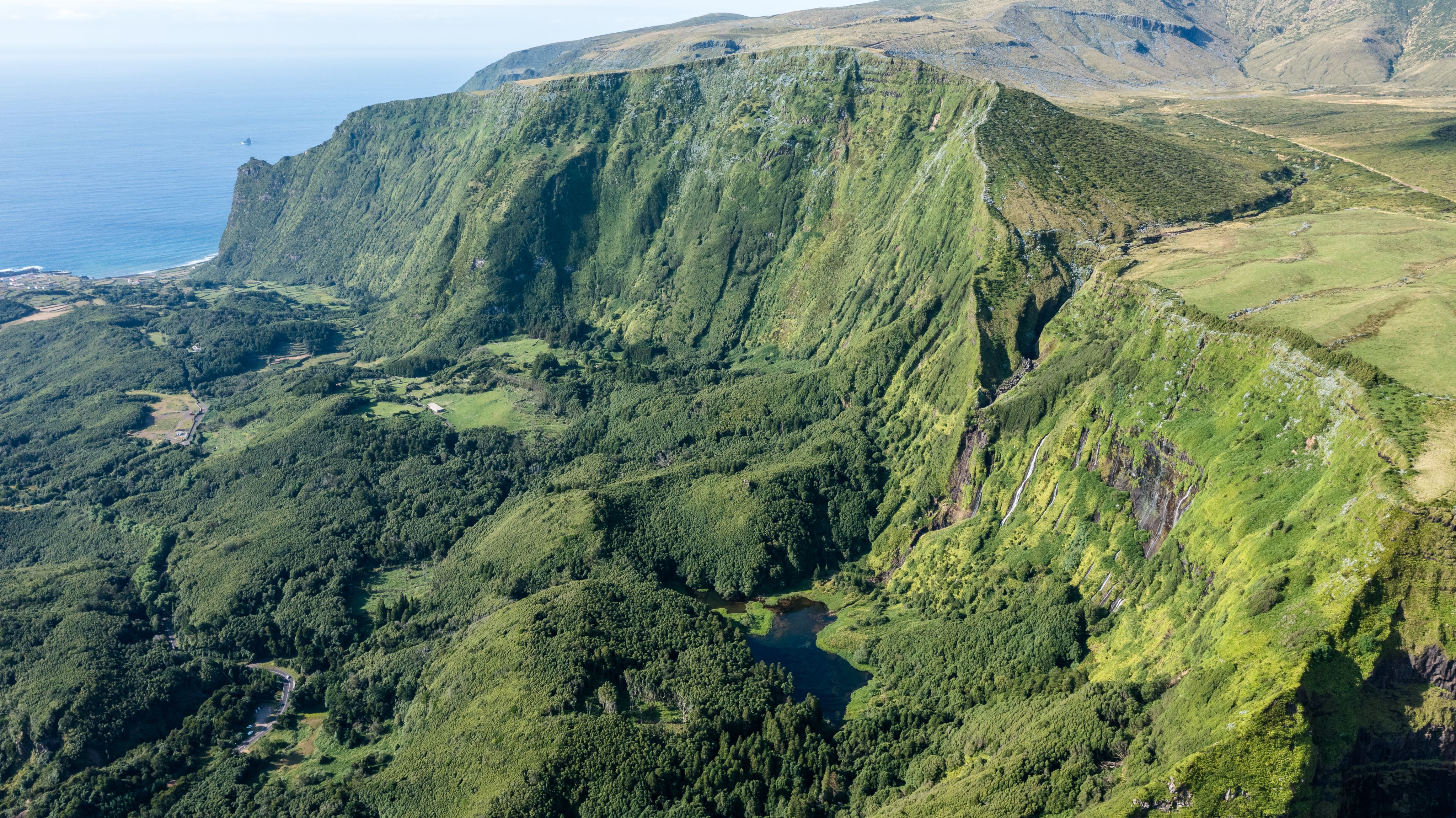
Eco-friendly food experiences
Famous for its contented cows, richly diverse marine life, and a subtropical climate that fosters abundant fruit production, the Azores is a truly self-sufficient archipelago. Traditional farming methods and cooking techniques honed over centuries ensure that eating your way around the islands is one of the best ways to get to know the Azores and its inhabitants. Below, we’ve cherry picked some standout experiences and dishes.
Go on a plantation tour
The Gorreana Tea Factory, founded in 1883, is one of Europe's two remaining tea plantations on São Miguel island and it remains a family-run business, producing 100-percent organic green and black teas. Visitors can tour the plantation, taste the teas, and learn about how the island’s climate and lack of pollution allows the plants to thrive.
São Jorge caters to coffee lovers, too. The island is home to one of the oldest artisanal coffee plantations in Europe at Café Nunes, where visitors can tour a family-run plantation set on one of the island’s famous fajã flatlands and enjoy a cup of organic espresso made with love from beans cultivated and ground on the premises.
And then there are the island’s pineapples. Uniquely small and sweet, the pineapples of São Miguel are reportedly the only pineapples on the planet to be cultivated in greenhouses, in nutrient-rich soil that makes for truly delicious fruit. There are thousands of pineapple plantations on the island, several of which are open for public visits.
Visit UNESCO protected vineyards
Increasingly gaining attention on the international wine scene, the unique volcanic vinhos of the Azores have been enjoyed by islanders since the 15th Century. Wine production on the islands is particularly prominent on the islands of Graciosa and Terceira (where the Wine Museum in Biscoitos offers insights into the history of wine production across the archipelago), and Pico, whose vineyards have been UNESCO-protected since 2004.
Cultivating wine in rocky, weather-beaten terrain is no easy task, and local wine producers in centuries past rose to the challenge by creating a series of currais, or plots enclosed by basalt stone walls to protect vines planted in the volcanic soil.
Pico’s distinctive vineyards, which stretch for 987 ha, make up the Landscape of Pico Island Vineyard Culture Heritage Site, and cycling or walking among the vineyards (stopping at a winery or two along the way) is an excellent way to admire the creative approach to winemaking in challenging conditions.
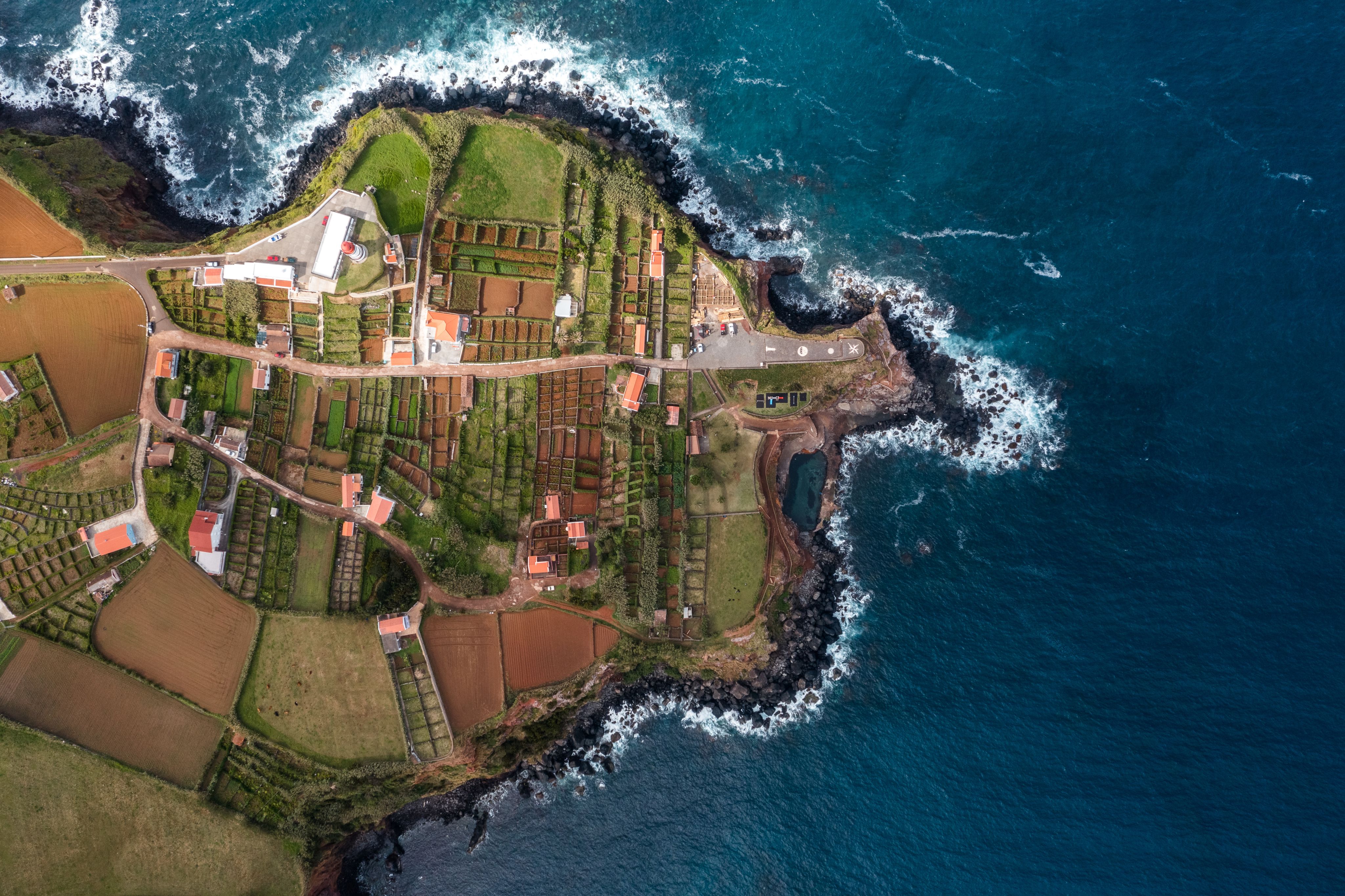
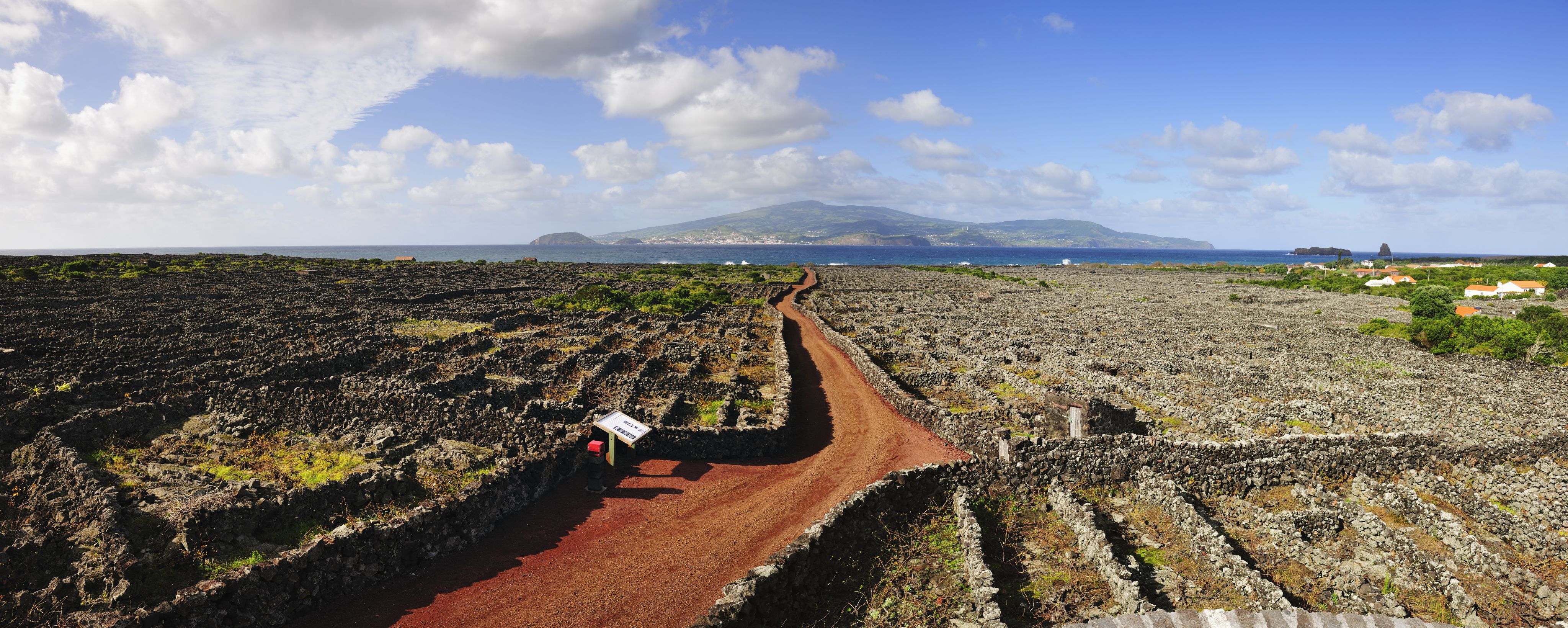
Gastronomy
Surrounded by the Atlantic Ocean and famously home to more cattle than people, it’s little wonder that Azorean cuisine makes exceptional use of fish, seafood, beef, and dairy products. Here, free-roaming cows grazing on lush green grass produce milk for exceptional cheeses ranging from mild, semi-soft queijo fresco to sharp queijo da Ilha, while sustainable fishing methods bring exceptional fish and seafood to the table.
Vegetarians and vegans won’t go hungry, either - the bountiful fruit and vegetables of the archipelago (including passion fruit, sweet pineapple, and bananas) has earned the Azores the nickname ‘the floating gardens of the Azores,’ while local breads and pastries keep sweet-toothed visitors coming back for more.
Farm-to-table dining is a time-held tradition on the islands, and visitors can even enjoy rich meat and vegetable stews slow-cooked underground by volcanic heat in the famous cozidos of São Miguel island.
Grass-fed beef from the Azores’ famously contented free-grazing cattle takes on a starring role in traditional dishes like Terceira Island’s alcatra (a spiced pot roast dish) and in the form of superior steaks.
Super-fresh fish comes cooked into stews or cooked over charcoal grills with salt and lemon, and Azorean tuna steaks will linger long in foodie memory banks. Seafood lovers can also dig into rich fish stews, snack on crunchy chicharros (fried mackerel, eaten whole), and enjoy sharing plates of cracas (an Azorean barnacle) and lapas (local limpets).
Try a local delicacy
Part of the magic of a trip to the Azores lies in discovering the unique identity of each of the islands, and this captivating diversity extends to Azorean cuisine. While the archipelago shares a passion for beef, seafood, dairy, and desserts, each of the nine islands has its own speciality dishes.
No visit to São Miguel is complete without trying bolo lêvedo (a sweet, fluffy bread) and the cozido das Furnas. Slow-cooked underground by volcanic heat, this rich stew traditionally features various cuts of meat, with vegetarian and vegan versions increasingly available.
Famous for its Alcatra (beef pot roast), Terceira island is also renowned for its myriad cheeses, and wins over sweet-toothed visitors with queijadas da Dona Amélia – lightly spiced, sugar-dusted tartlets offered to Portuguese Queen Amélia during a visit here in 1901.
Deliciously sweet, queijada tartlets take on subtle flavour differences across the islands (despite the name, most don’t contain cheese).
Be sure to try the star-shaped cinnamon-infused Queijadas da Graciosa on Graciosa Island, and compare them with the deliciously crumbly queijada da Vila of São Miguel. Each island has its own celebrated cheeses, too, of which the DOP-classified Queijo da Ilha de São Jorge is arguably the most famous (but we highly recommend trying as many as you can).
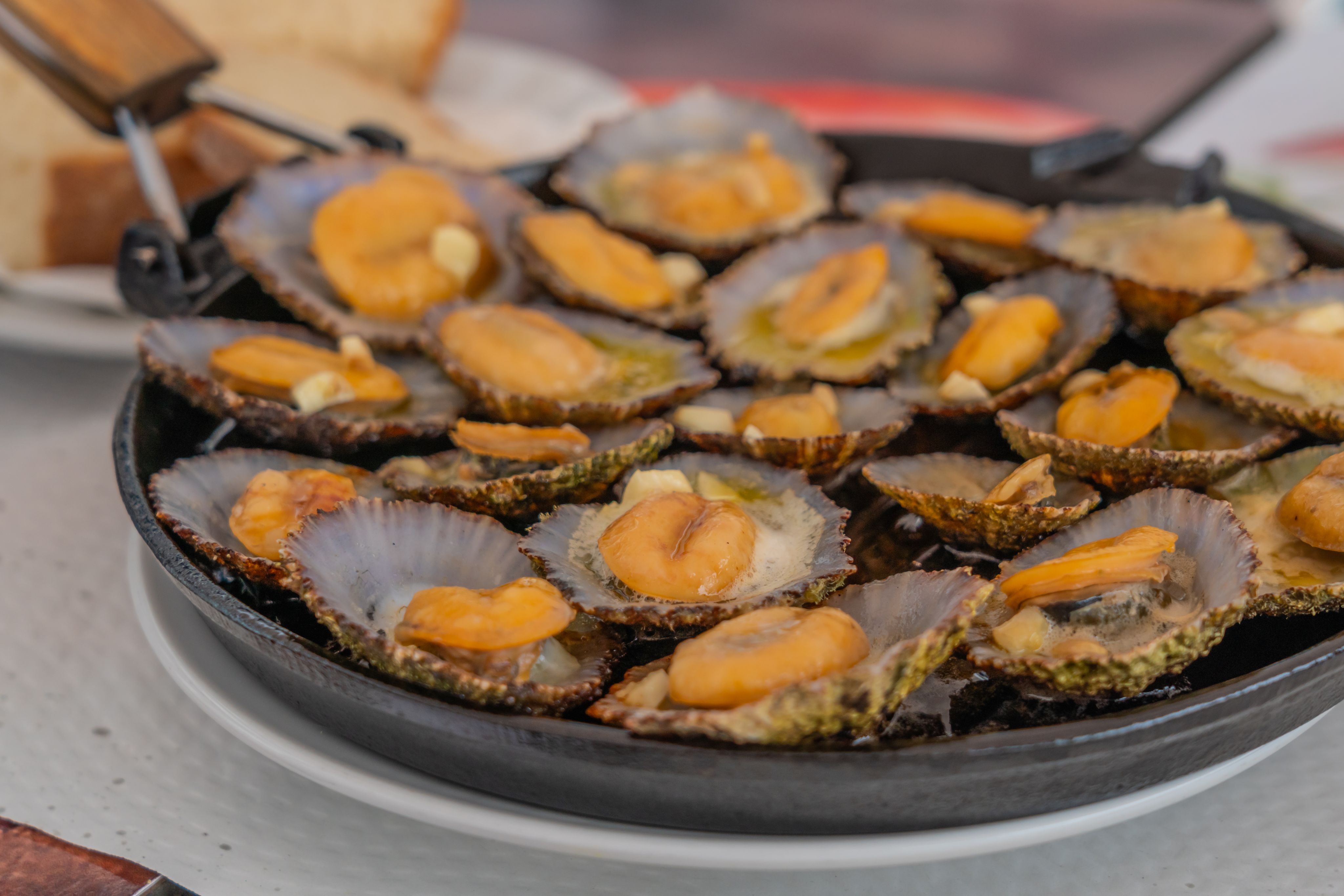
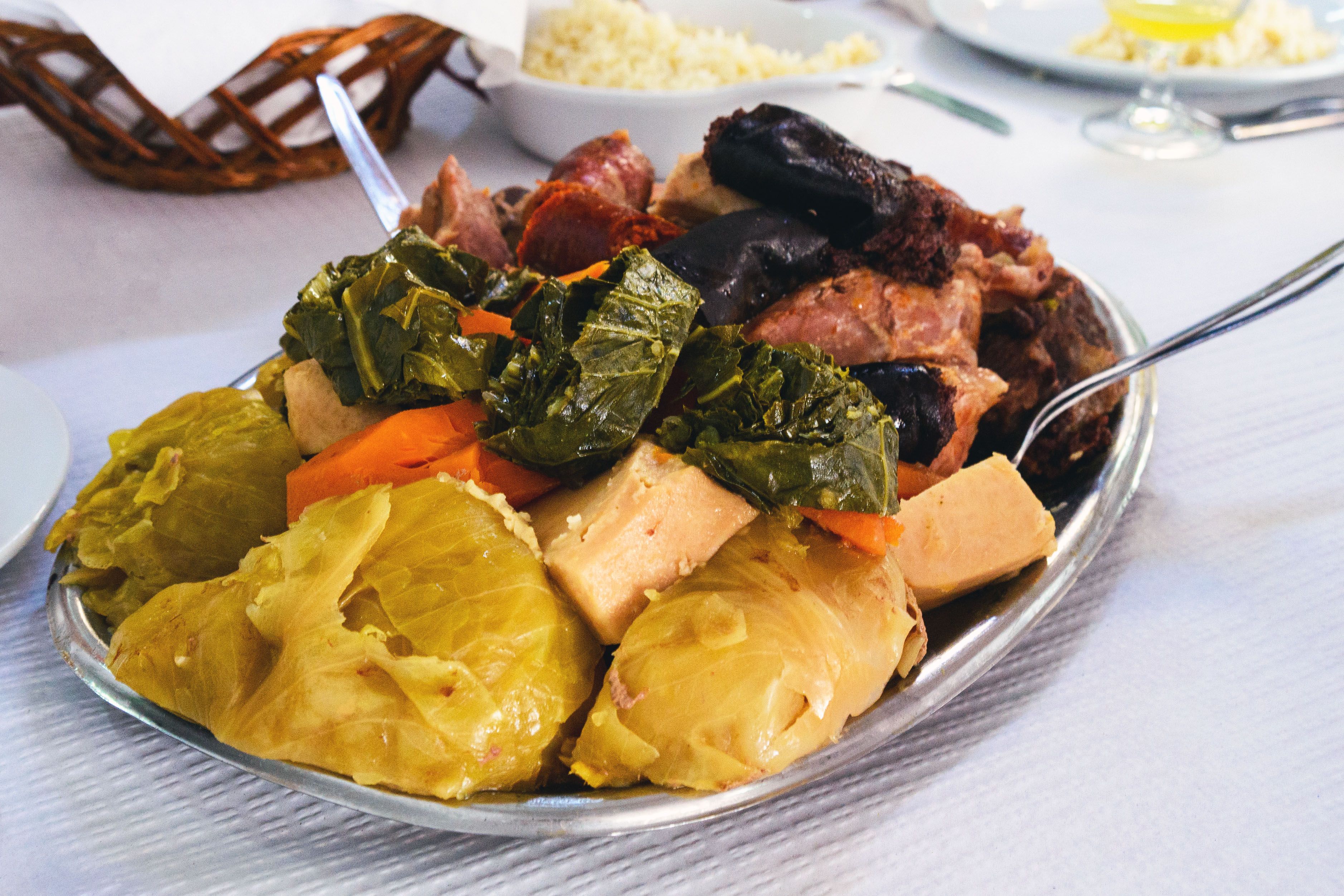
Sustainable stays
Octant Furnas
Sustainability and luxury go hand-in-hand at a spa hotel surrounded by more hot springs than anywhere else in Europe. The hotel's own dynamic thermal pools are open 24/7, and the restaurant harnesses the power of the hot springs to cook delicious meals from locally-sourced ingredients. Committed to protecting the island and its inhabitants, Octant Furnas runs social projects including a solidarity pet shop raising funds for abandoned animals. Coffee pods here are recycled, with the coffee grounds used to produce rice for food banks.
Grand Hotel Açores Atlântico
One of São Miguel’s most iconic hotels, the five-star Grand Hotel Açores Atlântico holds a Travelife Gold Certification for sustainable accommodations. Facing the marina in scenic Ponta Delgada, the luxurious waterfront hotel makes an ideal base for exploring the historic downtown on foot or on two wheels. Fueled by hearty breakfasts featuring delicious local ingredients, guests can plan their own island adventures or embark on sustainable whale watching tours, hiking excursions, and other eco-friendly activities arranged by staff at the hotel.
Pestana Bahia Praia
With sweeping ocean views, direct access to São Miguel island’s Agua d’Alto beach, and an outdoor freshwater pool surrounded by green spaces and gardens, 4-star Pestana Bahia Praia celebrates its connections with nature and the ocean. The hotel holds Green Key certification for sustainable tourism, and guests can enjoy two restaurants, a bar, games room and tennis courts, and extensive grounds that house their own 17th-century chapel. The coastal location makes for excellent hiking and biking opportunities, and the hotel can arrange whale watching tours and other sustainable activities.
Make it happen
British Airways Holidays in the Azores make it easy to reconnect with nature and discover one of the most strikingly beautiful destinations in Europe. Direct flights from London Heathrow to Ponta Delgada provide the perfect entry point to an archipelago which stuns at every turn with its otherworldly landscape, rich architectural history and magnificent marine life. With the ability to book your flight and hotel together carefully curated by the experts, you can focus on enjoying the Azorean bounty in all its glory. All British Airways holidays at ATOL protected and include 23kg of checked baggage allowance per person.









